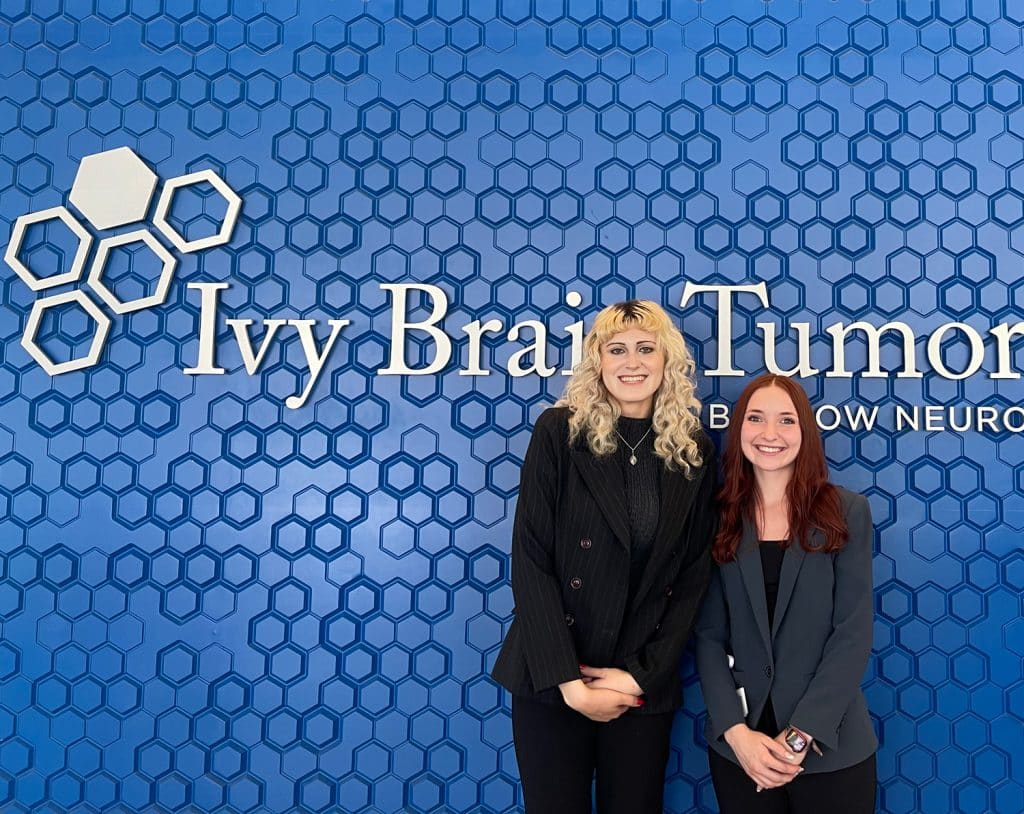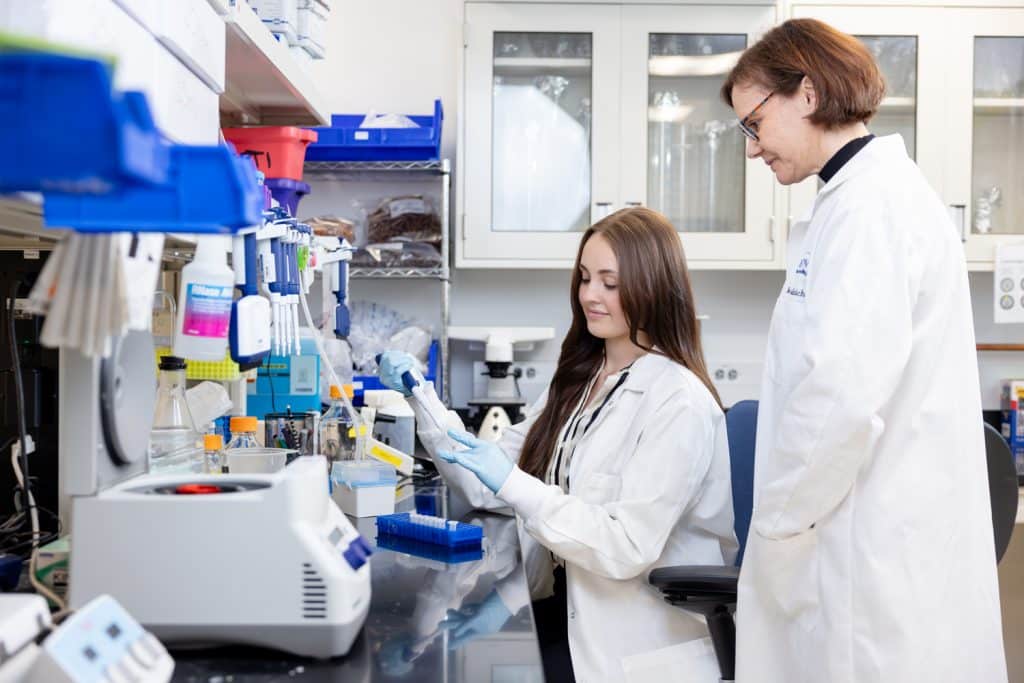Neurological conditions are the leading cause of disability, with more than 43% of people affected worldwide. Yet for most of these conditions, treatments and cures remain elusive.
This summer, three NAU students were driven to change that.
Avery Carter, Sophia Justice and Alexandra Wicker—all Lumberjack Scholarship recipients in NAU’s Honors College—were selected to participate in a competitive internship program at the Barrow Neurological Institute. As the world’s largest neurological disease treatment and research hub, Barrow attracts interns from throughout the country and the globe.
The three Lumberjacks had the opportunity to work alongside some of the top neurological scholars in the world on research that could help transform the lives of those who have amyotrophic lateral sclerosis (ALS), multiple sclerosis (MS) and other diseases.

It’s always been Wicker’s goal to become a neurologist and help solve the puzzle of Alzheimer’s disease, which affects nearly 7 million Americans.
“Its social and economic burden is immense, yet it has been very difficult to treat to date,” Wicker said.
The rising senior worked with Dr. Marwan Sabbagh, a neurologist at Barrow, on a journal article that provides an overview of the last 20 years in research on monoclonal antibodies, which have been used in experimental treatment for Alzheimer’s. The article, coming soon in the journal Neurology and Therapy, summarizes each monoclonal antibody development this century and what it has taught us.
“This internship allowed me to learn more about the disorder while also contributing to extremely meaningful research,” Wicker said. “Not only will I be walking away from this experience with another publication, but I’ve been able to confirm that my current career aspirations are what’s right for me.”
In a neighboring lab, rising senior Justice worked with translational neuroscientist Claudia Cantoni on a project that aims to find effective preventative measures for MS.
“My lab focuses on lifestyle and environmental risk factors in MS,” Justice said. “My specific project was investigating the combined neuroprotective effects of intermittent fasting and supplementation with dietary spermidine”—a chemical compound found in chickpeas, rice bran and other foods that’s thought to delay age-related disease.
Justice said the internship gave her a unique opportunity to witness two sides of neuroscience: the clinical side and the research side.
“My time at Barrow gave me the knowledge and tools I need to succeed as I continue my education and work toward my ultimate goal of becoming a neurologist,” she said.

Meanwhile, Carter (pictured at top), a rising junior who has clinical experience, got a rare peek into the research side of things during her time at Barrow. She worked with translational neuroscientist Rita Sattler on scholarship that investigates the contribution of a specific support cell in the central nervous system to two neurodegenerative diseases: ALS and frontotemporal dementia (FTD).
“I was absolutely fascinated by the research being conducted in Rita Sattler’s lab on ALS/FTD, and I knew it was something I wanted to be a part of,” Carter said. “Once I began meeting with people from her lab, this sealed the deal. Everybody was so kind and welcomed me with open arms, which meant a lot to me because this was my very first research position.”
The aspiring physician said the experience opened her eyes to other career avenues in medicine—other avenues, she said, of improving people’s lives.
“I feel so honored to have been given the opportunity to contribute to this groundbreaking research, knowing that one day, it’ll change the lives of so many ALS/FTD patients and their families,” she said.
Jill Kimball | NAU Communications
(928) 523-2282 | jill.kimball@nau.edu




